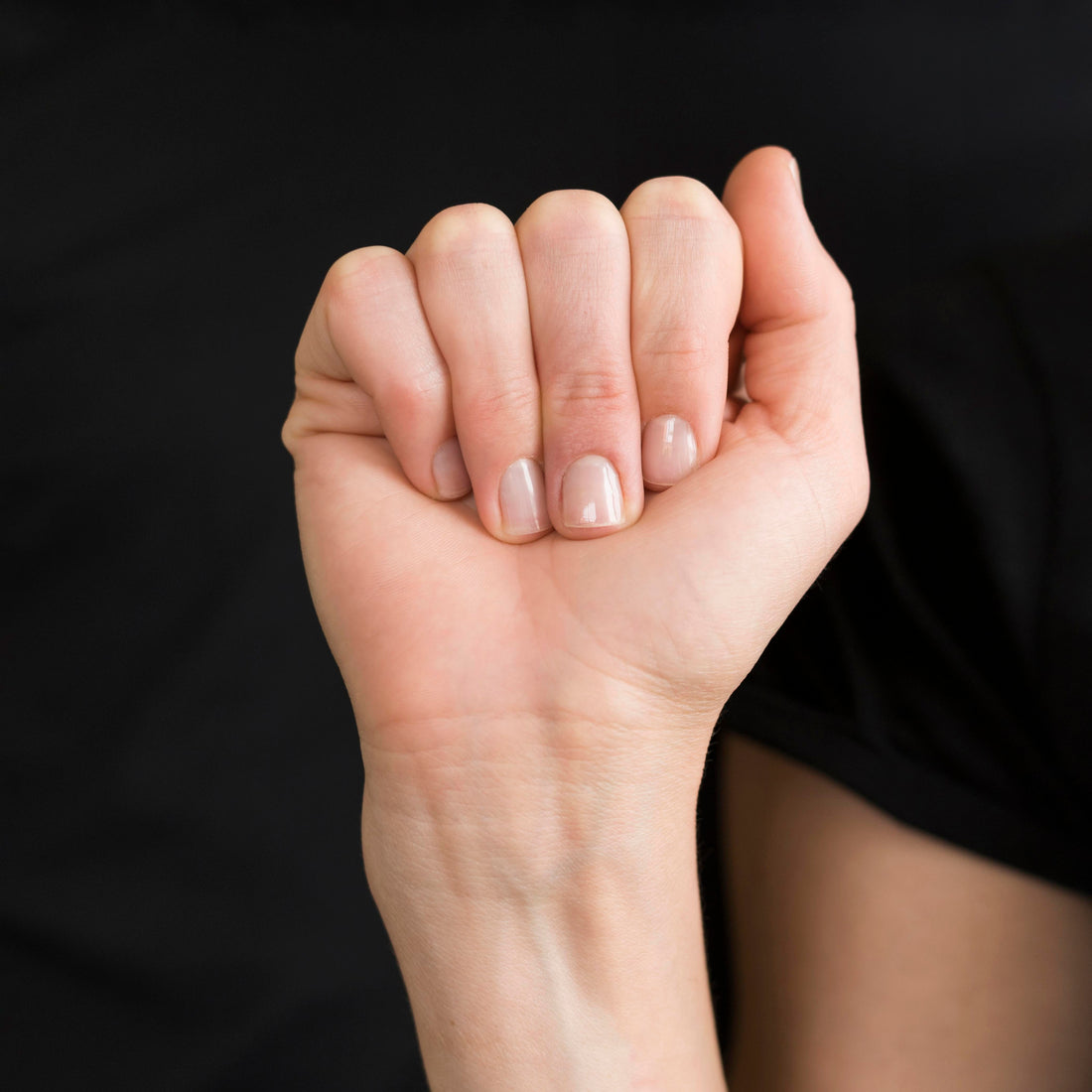
I had caught myself doing it again. Mid-Zoom call, hand unconsciously at my mouth, teeth working away at what little remained of my thumbnail. The moment I realised, that familiar wave of shame washed over me—not just about the nail biting itself, but about being "caught" by my own consciousness, failing at something that seems so simple: just stop putting your fingers in your mouth.
If you're reading this whilst hiding your hands or feeling that twist of recognition in your stomach, I want you to know something: you're not weak, you're not childish, and you're certainly not alone. Research shows that up to 30% of adults engage in nail biting at some point, with about 20-30% doing so regularly. That's millions, quietly struggling with something that feels simultaneously trivial and insurmountable.
What if I told you that your nail biting isn't actually about your nails at all? What if, instead of treating it as a bad habit to break through sheer willpower, we understood it as your nervous system's attempt at emotional regulation.
What Your Nail Biting Is Really Trying to Tell You
We need to start with a truth that might feel uncomfortable: nail biting is rarely just nail biting. Dr. Fred Penzel's research on body-focused repetitive behaviours reveals that what we call "nail biting disorder" or onychophagia (when it becomes clinical) serves multiple psychological functions that we're often not consciously aware of.
Think about when you bite your nails. Is it during that work presentation? Whilst waiting for test results? When you're deep in thought, trying to solve a problem? A 2021 study in the Journal of Behavior Therapy and Experimental Psychiatry found that nail biting peaks during two distinct emotional states: anxiety/stress and, surprisingly, boredom or under-stimulation. Your nail biting is your body's attempt to regulate these uncomfortable emotional states—it's literally trying to help you cope.
When you're anxious, your nervous system is screaming for regulation, and nail biting provides immediate (if temporary) relief through:
- Sensory input that grounds you in the present moment
- Repetitive motion that soothes your nervous system
- A sense of control when everything else feels chaotic
- Endorphin release from the mild pain, creating a tiny hit of relief
This isn't weakness it's your body's wisdom gone slightly sideways. The same mechanism that once helped our ancestors stay alert during danger now manifests as nail biting during your quarterly review. Understanding this shifts everything. You're not fighting against yourself, you're working with a nervous system that's trying its best with outdated software.
The prevalence of nail biting tells its own story about our collective state. Studies show that nail biting has increased by nearly 20% since 2020, correlating directly with rises in reported anxiety and depression. We're not dealing with individual failures of willpower we're seeing a collective response to unprecedented stress levels.
But here's where it gets interesting: not all nail biting is created equal. Researchers distinguish between:
- Automatic nail biting: You don't even realise you're doing it
- Focused nail biting: Deliberate biting to "fix" perceived imperfections
- Emotional nail biting: Direct response to feelings
Most of us experience a combination, which is why single-solution approaches to nail biting treatment rarely work. You might successfully stop biting during meetings (focused) but find yourself destroying your nails whilst reading (automatic). This isn't failure it's data about what your nervous system needs in different contexts.
Why Willpower Isn't Working
"Just stop." If I had had a dollar for every time someone offered this helpful advice about nail biting, I could fund my own research study. The assumption that nail biting is simply a matter of self-control is not just unhelpful—it's scientifically inaccurate and emotionally harmful.
We hide our hands, we don't talk about it, and we judge ourselves harshly for this "childish" behaviour. But here's the thing about shame—it's not a motivator for positive change. In fact, research consistently shows that shame correlates with increased, not decreased, unwanted behaviours.
Willpower is a finite resource that depletes throughout the day. This is why you might successfully avoid nail biting all morning, only to find yourself going to town on your nails by 3 PM. It's not that you've become weaker; you've simply exhausted your self-regulation reserves.
A 2019 study on nail biting therapy found that self-compassion-based approaches were twice as effective as willpower-based strategies.
- 60% reduction in nail biting frequency
- Decreased anxiety and shame
- Improved overall emotional regulation
- Better long-term maintenance of progress
It's recognising that nail biting solutions must address the underlying emotional need, not just the surface behaviour.
Consider this reframe: What if nail biting isn't the problem but a clumsy solution? What if the real issue is that we haven't developed other ways to meet the legitimate needs it's serving? This shift from "breaking a bad habit" to "learning new coping skills" changes everything about how we approach nail biting treatment.
The Courage to Begin
Here's what I really want you to get from all this: every single person who bites their nails has tried to stop through pure willpower. If that actually worked, you wouldn't be here reading this, would you? The fact that you're here, looking for real answers and nail biting solutions, is honestly brave.
Your nail biting doesn't define you any more than your coffee addiction or your terrible taste in reality TV does. It's been doing a job, protecting you in its own backwards way. As you build better tools for dealing with stress and emotions, you can basically retire it with thanks for its service (however mangled your nails might be).
If you remember nothing else, remember this: struggling with nail biting doesn't mean you're broken. You're just human, doing your best with what you've got. The way forward isn't through more self-hatred but through actually understanding what's going on and slowly building better ways to cope.
